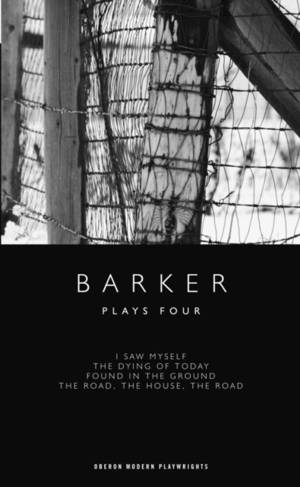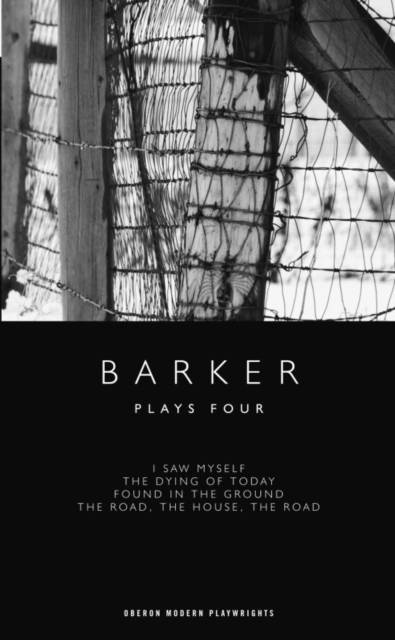
- Retrait gratuit dans votre magasin Club
- 7.000.000 titres dans notre catalogue
- Payer en toute sécurité
- Toujours un magasin près de chez vous
- Retrait gratuit dans votre magasin Club
- 7.000.0000 titres dans notre catalogue
- Payer en toute sécurité
- Toujours un magasin près de chez vous
Barker
Plays Four: I Saw Myself; The Dying of Today; Found in the Ground; The Road, The House, The Road
Howard Barker
45,45 €
+ 90 points
Format
Description
Includes the plays I Saw Myself, The Dying of Today, Found in the Ground and The Road, the House, the Road
Howard Barker is one of the most significant and controversial dramatists of his time. His plays challenge, unsettle and expose.
In I Saw Myself a woman's longing to understand her compulsion to transgress the laws of her society comes into collision with the conventions of an art form. In the weaving of a tapestry Barker's13th century heroine privileges private life over public responsibility. If she is cruelly punished she is also granted self-awareness.
A critical moment in social decay is also at the centre of The Dying of Today, in which a stranger who luxuriates in the telling of bad news observes the effects of his devastating narrative on a humble barber. The barber's recovery from pain, and the beauty of his sensibility, bring the two strangers into an emotional proximity.
Barker's most experimental work in form and content is probably Found in the Ground, a mobile, musical work set during the last days of an aged Nuremberg judge whose baying hounds and burning library form an uncanny background to his wayward daughter's struggle to make meaning from the atrocities of the 20th century.
The contradictions of the humanist personality are explored in The Road, the House, the Road. Erasmus' obscure colleague Aventinus was found dead on a wintry road. How he arrived at his solitary death forms the subject of this speculation on scholarship, mischief and the murderer's vocation.
Howard Barker is one of the most significant and controversial dramatists of his time. His plays challenge, unsettle and expose.
In I Saw Myself a woman's longing to understand her compulsion to transgress the laws of her society comes into collision with the conventions of an art form. In the weaving of a tapestry Barker's13th century heroine privileges private life over public responsibility. If she is cruelly punished she is also granted self-awareness.
A critical moment in social decay is also at the centre of The Dying of Today, in which a stranger who luxuriates in the telling of bad news observes the effects of his devastating narrative on a humble barber. The barber's recovery from pain, and the beauty of his sensibility, bring the two strangers into an emotional proximity.
Barker's most experimental work in form and content is probably Found in the Ground, a mobile, musical work set during the last days of an aged Nuremberg judge whose baying hounds and burning library form an uncanny background to his wayward daughter's struggle to make meaning from the atrocities of the 20th century.
The contradictions of the humanist personality are explored in The Road, the House, the Road. Erasmus' obscure colleague Aventinus was found dead on a wintry road. How he arrived at his solitary death forms the subject of this speculation on scholarship, mischief and the murderer's vocation.
Spécifications
Parties prenantes
- Auteur(s) :
- Editeur:
Contenu
- Nombre de pages :
- 270
- Langue:
- Anglais
- Collection :
Caractéristiques
- EAN:
- 9781840028515
- Date de parution :
- 01-06-09
- Format:
- Livre broché
- Format numérique:
- Trade paperback (VS)
- Dimensions :
- 130 mm x 208 mm
- Poids :
- 340 g

Les avis
Nous publions uniquement les avis qui respectent les conditions requises. Consultez nos conditions pour les avis.






